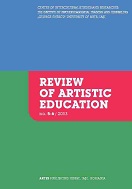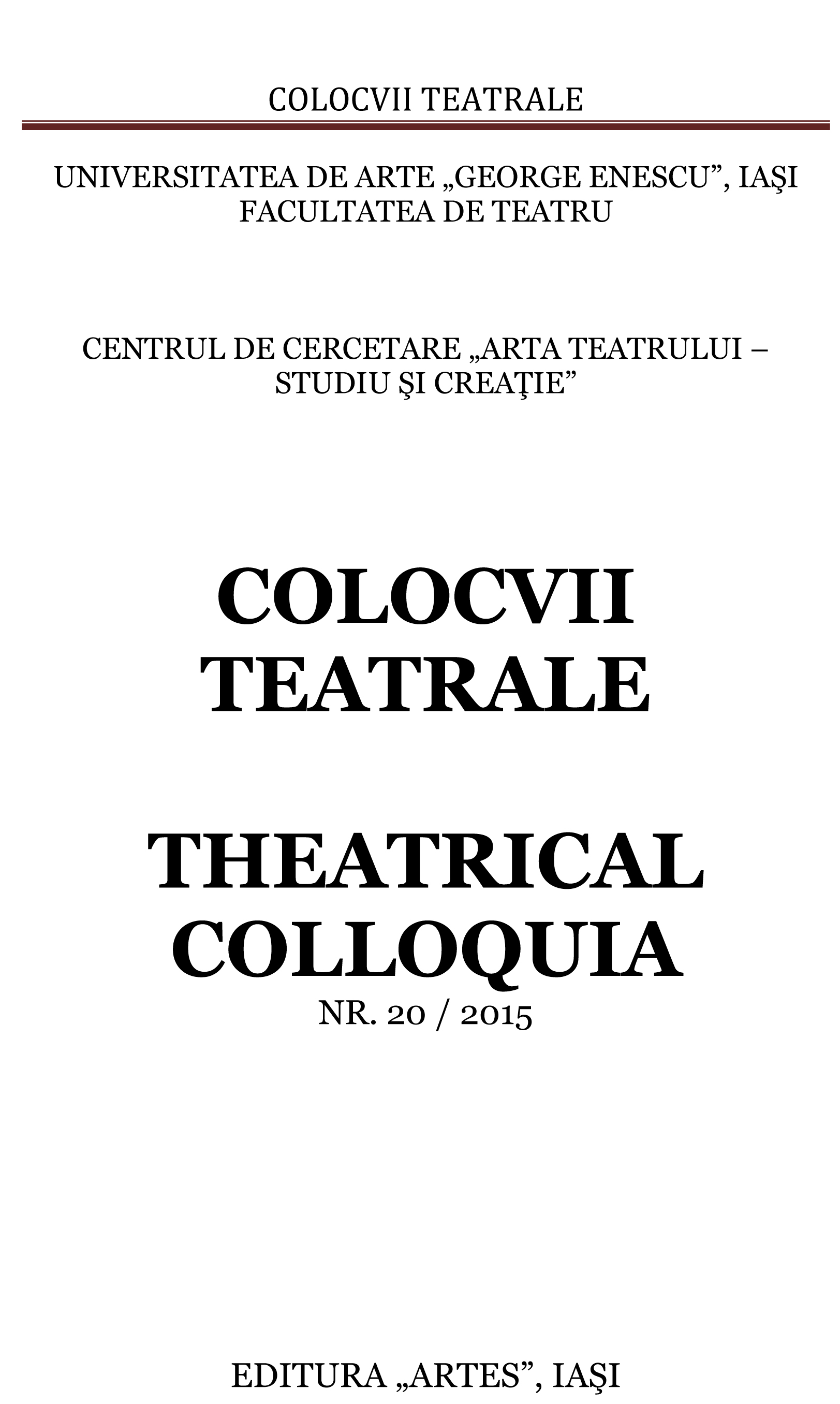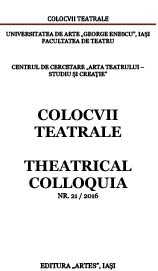
In Search of an Ideal Actor
În căutarea actorului ideal
Keywords: theatrical aesthetics; acting; animation theatre
By all that it does, by its power of expression – the puppet claims its actor status. The arguments are offered by laws governing drama, its scene is not to be a place of answers, but one where questions arise - questions about life. For example, Peter Brook, sharing his secrets about acting and theater with us, helps us to pay more attention to the play of the puppet actor and to its rigor. Thus, we discover the one that gives energy to the puppet – the puppet actor. The puppet actor can become an ideal actor if, behind the puppet, the actor makes an exercise of utmost generosity – to withdeaw into the shadow. He knows that the development of the animation technique should be doubled with the body exercises and creative skills; only this way the energy will have enough strength to walk the road to the spectator. Getting closer to the puppet acquires, in this perspective, ritual shades; the two - the puppet and the puppet actor - will lend to one another a little bit of their identity, without this transfer, the energy of the show fades away, melts or simply is not born.
More...


